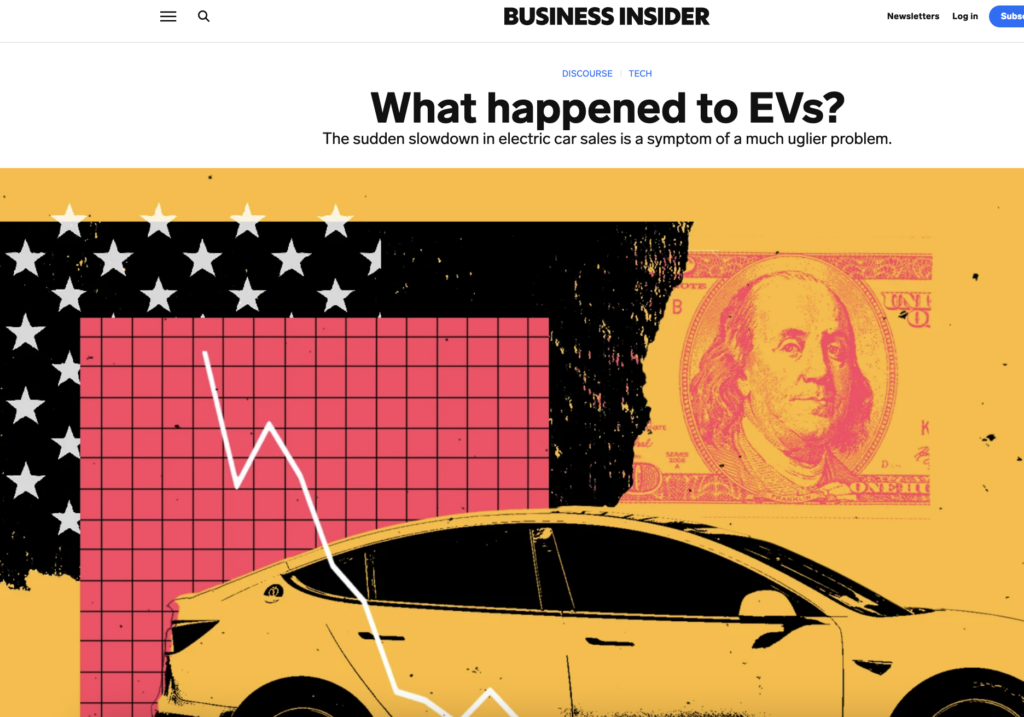Auto Dealerships Continue To Resist Electric Vehicle Regulations

Table of Contents
Financial Concerns and Profit Margins
The shift to EVs presents substantial financial challenges for auto dealerships, primarily impacting their profit margins. Dealerships are facing significant headwinds as they navigate this transition.
Lower Service Revenue
EVs, with their significantly fewer moving parts compared to internal combustion engine (ICE) vehicles, generate considerably less service and repair revenue.
- Lower maintenance frequency: Electric vehicles require far less frequent maintenance than gasoline-powered cars, directly impacting the frequency of service visits and associated revenue.
- Specialized training and equipment: Servicing EVs requires specialized tools, training, and knowledge of high-voltage systems, representing a significant upfront investment for dealerships. This cost is a major barrier to entry for many.
- Decreased revenue streams: The reduced service opportunities directly threaten the established revenue streams dealerships rely on, impacting their overall profitability and potentially causing financial instability.
Inventory Management Challenges
The dynamic nature of the EV market, with rapidly evolving models and technologies, creates significant inventory management challenges.
- Predicting EV demand: Accurately forecasting demand for specific EV models and variants is difficult, leading to potential overstocking or shortages.
- Risk of obsolescence: The rapid technological advancements in the EV sector mean that models and parts can quickly become obsolete, leading to losses on inventory.
- Higher initial investment: Stocking EV inventory requires a higher initial investment compared to ICE vehicles due to the generally higher price points of EVs. This places a strain on dealership capital.
Lack of Technician Training and Infrastructure
The successful integration of EVs into the automotive landscape requires a significant investment in technician training and supporting infrastructure, something many dealerships are slow to adopt.
Specialized Skills Gap
Repairing EVs demands specialized skills and knowledge, creating a considerable skills gap within the existing dealership workforce.
- Investment in training programs: Dealerships need to invest heavily in training programs to equip their technicians with the necessary skills to handle high-voltage systems and EV-specific technologies.
- Shortage of qualified technicians: The lack of qualified EV technicians creates a bottleneck in service capacity, leading to longer wait times for customers and potential dissatisfaction.
- Slow adaptation to evolving skills: Many dealerships are lagging in adapting to the evolving skill requirements of the EV market, hindering their ability to effectively service electric vehicles.
Inadequate Infrastructure for EV Servicing
Dealerships require specialized equipment and infrastructure to safely and efficiently service high-voltage electric vehicles. This necessitates substantial capital expenditure.
- High-voltage safety equipment: Investment in high-voltage safety equipment and training is critical to ensure the safety of technicians working on EVs.
- Lack of charging infrastructure: The absence of adequate charging infrastructure at dealerships impacts customer convenience and service efficiency, potentially deterring EV adoption.
- Costly facility upgrades: Upgrading existing facilities to accommodate EV servicing, including specialized lifts and safety features, can be expensive and time-consuming.
Resistance to Change and the Status Quo
Beyond financial and infrastructural hurdles, a deep-seated resistance to change within the auto dealership sector is significantly impeding the widespread adoption of EVs.
Entrenched Business Models
The traditional business model of auto dealerships is deeply rooted in ICE vehicles, making the transition to EVs a significant disruption.
- Resistance to new technologies: Many dealerships are reluctant to adopt new sales strategies and technologies specifically designed for EVs.
- Resistance to changing sales processes: Dealerships may be resistant to changing their established sales processes and customer interactions, which are often optimized for ICE vehicles.
- Lack of incentives: The absence of sufficient incentives for dealerships to actively promote and sell EVs further contributes to their resistance.
Lobbying Efforts Against EV Regulations
Some dealership associations actively lobby against stricter EV regulations and mandates, hindering the transition to a more sustainable automotive industry.
- Concerns about profitability: Dealerships express concerns that stricter regulations and mandates will negatively impact their profitability.
- Influence of lobbying groups: Powerful lobbying groups exert considerable influence on policymakers, potentially delaying the implementation of effective electric vehicle regulations.
- Need for greater transparency: Greater transparency and accountability in dealership lobbying activities are necessary to ensure fair and effective policymaking.
Conclusion
Auto dealerships face multifaceted challenges in adapting to the increasing prevalence of electric vehicles. Financial concerns, lack of technician training and infrastructure, and resistance to change all contribute to their reluctance to fully embrace EV regulations and the transition to a cleaner transportation future. Overcoming these obstacles requires a collaborative effort between automakers, dealerships, government agencies, and other stakeholders to provide adequate training, financial incentives, and support. This collaborative approach is vital to ensure a smoother transition to a more sustainable automotive industry. Without addressing these issues, the widespread adoption of EVs and the achievement of broader climate goals will be significantly hampered. We need effective policies and initiatives that support dealerships in this transition, ultimately paving the way for a cleaner and more sustainable transportation future. The effective implementation of comprehensive electric vehicle regulations is crucial for achieving this goal.

Featured Posts
-
 Pago De Licencia Por Maternidad Para Tenistas Wta Un Adelanto En El Deporte Femenino
Apr 27, 2025
Pago De Licencia Por Maternidad Para Tenistas Wta Un Adelanto En El Deporte Femenino
Apr 27, 2025 -
 Two New Wind Farms Join Pne Groups Growing Portfolio
Apr 27, 2025
Two New Wind Farms Join Pne Groups Growing Portfolio
Apr 27, 2025 -
 The Importance Of Middle Managers Bridging The Gap Between Leadership And Employees
Apr 27, 2025
The Importance Of Middle Managers Bridging The Gap Between Leadership And Employees
Apr 27, 2025 -
 Top Seed Pegula Claims Charleston Title After Battling Collins
Apr 27, 2025
Top Seed Pegula Claims Charleston Title After Battling Collins
Apr 27, 2025 -
 Monte Carlo Masters 2025 Djokovics Shock Loss To Alejandro Tabilo
Apr 27, 2025
Monte Carlo Masters 2025 Djokovics Shock Loss To Alejandro Tabilo
Apr 27, 2025
